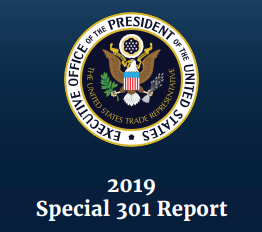China Shuts 361 Movie Piracy Sites, 57 Apps, and Arrests 251 Suspects
mardi 30 avril 2019 à 10:42
China is well known for its piracy problems. The country is awash with counterfeit media but in recent years authorities there have displayed a new enthusiasm to deal with the issue.
That includes tackling online platforms that distribute or facilitate access to infringing movies, including torrent sites, steaming portals, and infringing apps.
During a press conference held on Monday, China’s Ministry of Public Security (MPS) said that during the week-long Spring Festival in February, authorities had conducted a major piracy crackdown targeting those involved in movie piracy.
The figures are impressive, to say the least. The MPS revealed that in the process of investigating 25 cases, police had shuttered 361 movie piracy sites, 57 apps. A total of 251 suspects were arrested.

While the United States would like China to do more to protect international content, the press conference heard that following the release of local hit movies including Wandering Earth ($557m box office in two weeks), Flying Life, and Crazy Alien ($292m in 13 days), large-scale piracy of the titles became evident. This alarmed Chinese authorities who took immediate action.
“Concerned about the problem, the rapid deployment and deployment of local public security organs carried out a series of project investigations against…film infringement and piracy in the Spring Festival and quickly identified and resolutely destroyed the production source and online communication network of the HD pirated films,” the conference heard.
In one region alone, 59 suspects were arrested and more than 13,600 pieces of equipment were seized, including playback and encryption hardware and servers.
The ‘Twist Film’ app, which was blamed for the greatest illegal transmission of pirated films, was reportedly “destroyed”. It’s claimed the app had more than 100 million users and offered in excess of 150,000 films. Suspects were arrested in China and “overseas”.
The Ministry of Public Security said it deployed local authorities to Beijing and several other areas to “smash a number of pirated websites and apps” that had outstanding infringement issues, including the popular ‘Fantasy’ and ‘Film and TV Alliance’ apps.
Also among the site casualties was a 170,000-member platform called ‘BTBus’, a platform known as ‘Qiu Xia’, and ‘BT Movie Paradise’, a site that’s claimed to have had 3.7 million visitors every day. The full list is lengthy so the above is just a sample.
In comments to China’s National Copyright Administration, Wandering Earth producer Gong Geer said that after being released on February 5th, an illegal HD version appeared online on the 7th. This was immediately reported to the government and the response during the first week of the Spring Festival was described as “an anti-piracy war.”
“As a creator, we must believe that the relevant departments can support us in law and policy. The only thing we can do is to create works with all sincerity,” he said.
“No matter how much we are pirated, we believe that only the best works can attract the audience. As long as we do well, the audience will definitely go to the cinema to watch movies. This is a mutual trust between our filmmakers and the audience. I believe the audience will give us this opportunity.”
The next round of trade war negotiations between China and the United States begin today in Beijing. China’s handling of intellectual property issues are a particularly hot topic.
In March, the National Copyright Administration added US movies Green Room and Captain Marvel to a list of productions that should receive special protection, ordering online content providers not to host them and requiring online storage providers to prevent uploads. The US will want much more.
Last week, as first reported here on TF, Avengers: Endgame appeared online after being filmed in a Chinese cinema, two days before its official US release date. The copies that appeared certainly weren’t in high-quality HD but the illegal appearance of this huge production won’t have gone unnoticed.
Source: TF, for the latest info on copyright, file-sharing, torrent sites and more. We also have VPN reviews, discounts, offers and coupons.
 Every year the Office of the United States Trade Representative (USTR) publishes its Special 301 Report highlighting countries that aren’t doing enough to protect US intellectual property rights.
Every year the Office of the United States Trade Representative (USTR) publishes its Special 301 Report highlighting countries that aren’t doing enough to protect US intellectual property rights.

 This week we have four newcomers in our chart.
This week we have four newcomers in our chart. When the pirate streaming box hype reached new heights early 2017, the third-party Kodi add-on “Exodus” was at the center of the action.
When the pirate streaming box hype reached new heights early 2017, the third-party Kodi add-on “Exodus” was at the center of the action.
